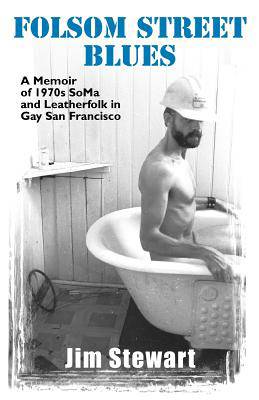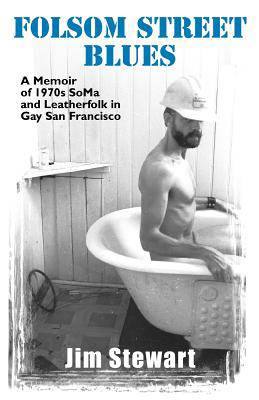
Bedankt voor het vertrouwen het afgelopen jaar! Om jou te bedanken bieden we GRATIS verzending (in België) aan op alles gedurende de hele maand januari.
- Afhalen na 1 uur in een winkel met voorraad
- Gratis thuislevering in België vanaf € 30
- Ruim aanbod met 7 miljoen producten
Bedankt voor het vertrouwen het afgelopen jaar! Om jou te bedanken bieden we GRATIS verzending (in België) aan op alles gedurende de hele maand januari.
- Afhalen na 1 uur in een winkel met voorraad
- Gratis thuislevering in België vanaf € 30
- Ruim aanbod met 7 miljoen producten
Zoeken
Folsom Street Blues

A Memoir of 1970s Soma and Leatherfolk in Gay San Francisco
Jim Stewart
Paperback | Engels
€ 24,45
+ 48 punten
Prijzen
Omschrijving
Jim Stewart, a survivor of the Titanic 1970s, has written a wonderful memoir revealing how South of Market became hip SoMa in San Francisco. Leading a lusty life surfing the first wave of gay liberation up to HIV, he is an uninhibited writer spilling personal tales of sex, art, and friendship during that first decade of Gay Liberation after Stonewall. As carpenter, he designed and constructed the sexy interiors of Folsom Street leather bars as well as of Fey-Way Studio, the first gay art gallery in San Francisco, where as photographer he exhibited his work on the walls he built. A pioneer settler in SoMa, he was fast friends with poet-singer Camille O'Grady, the leading lady of Folsom Street leather; with Oscar-Streaker Robert Opel who was murdered in his own Fey-Way gallery; with author Jack Fritscher and photographer Robert Mapplethorpe; with painter Chuck Arnett and porn mogul David Hurles; and with many other talents creating gay culture in San Francisco's influential "Drummer" Salon. As early as 1977, "Drummer" magazine published Stewart's leather photography. Folsom Street Blues continues his gift for words and images with manic, funny, and heartfelt profiles of real people who lived as if 1970s San Francisco were 1930s Berlin. Like Christopher Isherwood, Stewart is a camera. "Folsom Street Blues" is a picture-perfect portrait of the author as a young man among men experimenting with new identities in the sexual underground during the Titanic 1970s before the speeding first-class party, cruising on, crashed into the iceberg of HIV. Veterans of the 1970s party will applaud Stewart's humorous nostalgia. Younger readers may enjoy a safe peek into how 20th-century leatherfolk, dancing on tables and swinging from the chandeliers, helped found and form 21st-century diversity. Keep this book bedside with Edmund White's "My Lives," Felice Picano's "Like People in History," Jack Fritscher's "Some Dance to Remember: A Memoir-Novel of San Francisco 1970-1982," Justin Spring's "Secret Historian," Patti Smith's "Just Kids," and Armistead Maupin's "Tales of the City."
Specificaties
Betrokkenen
- Auteur(s):
- Uitgeverij:
Inhoud
- Aantal bladzijden:
- 230
- Taal:
- Engels
Eigenschappen
- Productcode (EAN):
- 9781890834036
- Verschijningsdatum:
- 26/06/2011
- Uitvoering:
- Paperback
- Formaat:
- Trade paperback (VS)
- Afmetingen:
- 140 mm x 216 mm
- Gewicht:
- 294 g

Alleen bij Standaard Boekhandel
+ 48 punten op je klantenkaart van Standaard Boekhandel
Beoordelingen
We publiceren alleen reviews die voldoen aan de voorwaarden voor reviews. Bekijk onze voorwaarden voor reviews.











